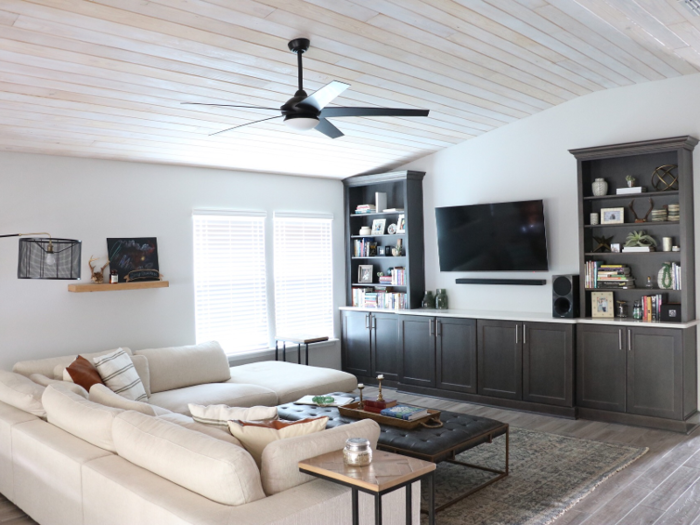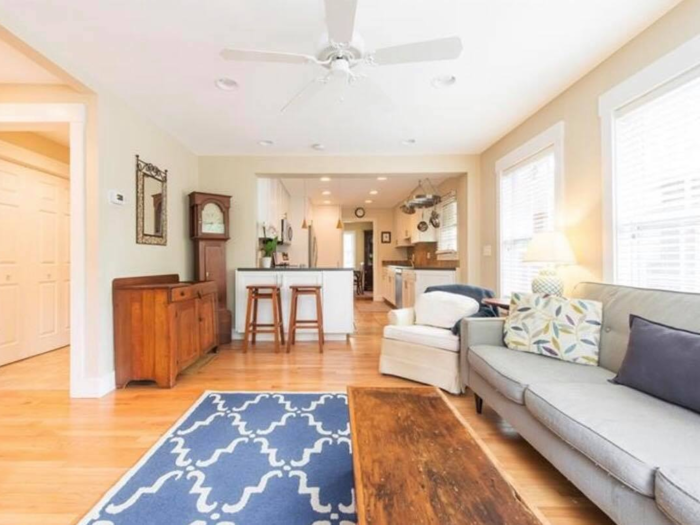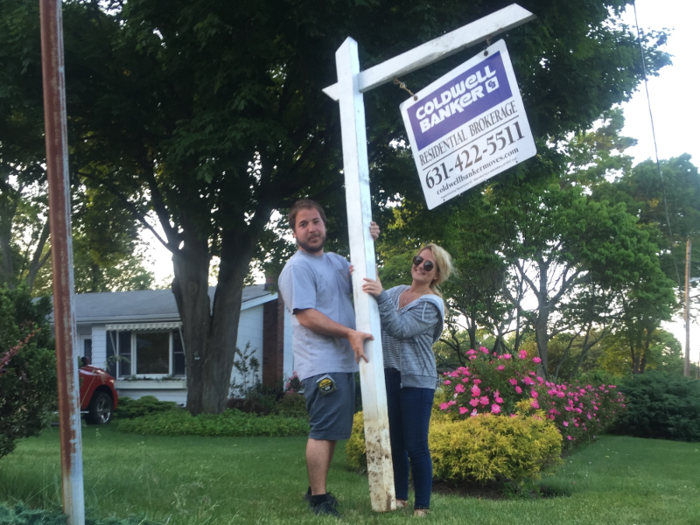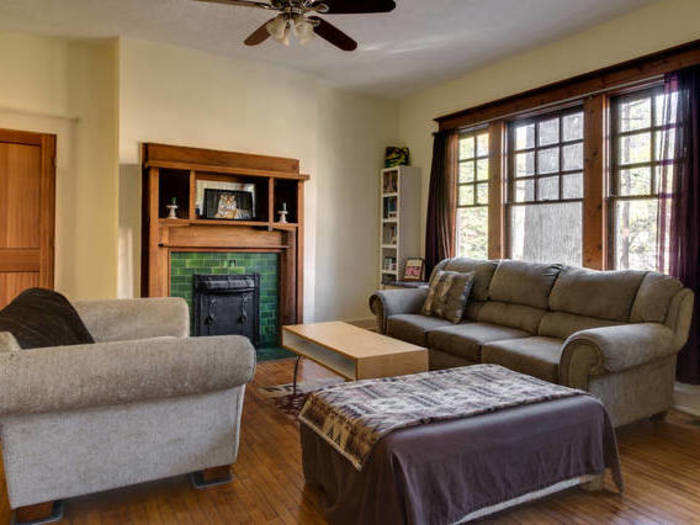- Home
- slideshows
- miscellaneous
- 5 millennials who became homeowners in their 20s share their best advice for buying your first house
5 millennials who became homeowners in their 20s share their best advice for buying your first house
Remi Ishizuka bought an $875,000 home in Los Angeles, California, by creating a separate savings account and visiting a financial coach.

Willy Harris and his girlfriend hired contractors to build a $204,000 house in Jacksonville, Florida, using a state assistance program.

Instead of purchasing a house, Willy Harris and his girlfriend had a new house built for $204,000 in 2017 — and they used Florida's First Time Home Buyers Program to help afford it.
The assistance program allows first-time homebuyers with qualified income and purchase price limits a grant to be used towards a down payment and closing costs of up to $15,000. For every year that passes, 20% of the grant is forgotten. After five years, the loan will be satisfied.
Qualifying for the program also qualified him for a Federal Housing Administration (FHA) Home Loan that required a 3% down payment, Harris, who was 24 at the time, told Business Insider.
They put down a $1,000 deposit to reserve the lot; the grant covered their $7,750 closing costs and $6,150 down payment. The remaining amount of the grant went towards the principal of the home loan, Harris said.
"Since we only put 3% down on the loan we elected to pay a monthly mortgage insurance of $109," said Harris, who oversees online and warehouse operations for a local interior design firm. "The way to get out of paying mortgage insurance is putting down 20% on the home loan. We plan on staying in this house five years or less. Paying mortgage insurance for five years will cost $6,450. Paying the 17% more at closing would have cost $34,680."
Their mortgage is currently $1,503 a month.
Harris recommends creating a savings plan. Figure out how much you will be able to afford and keep in mind mortgage amounts are based on length of loan, interest rate, and amount of owner equity, he said.
Build an excel sheet to track your expenses. Then, get prequalified for a loan so you can crunch all the numbers and make an educated decision on purchasing a home, he said.
"The key to being successful when purchasing your first home is purchasing a home that is significantly less than what you qualify for," he said.
A couple in their mid-to-late 20s saved enough money for a $400,000 home in Atlanta, Georgia, by adhering to a strict budget.

A couple in their mid-to-late 20s (who requested anonymity) working in development for a children's hospital and as a sales manager at Pepsi purchased a $400,000 house in Atlanta, Georgia, in 2018 without doing a "crazy savings program," the wife told Business Insider.
However, prior to moving to Atlanta, they had a gap in their rent that helped boost their savings, she said.
"When we were moving, it ended up taking much longer than expected so we ended up moving into a family member's house for about eight months which allowed us to save about $20,000 since it was rent free," she said.
But that was only one-fourth of their 20% down payment of $80,000. They saved the rest by adhering to a very strict budget, frequently sitting down to talk about what they thought was reasonable to spend on things like food, eating out, clothes, and the like.
"Our mortgage is about $2,000 a month, but that's what we were used to paying in rent," she said, adding that they hope to pay off the 30-year mortgage sooner by paying double during months they don't have a lot of expenses.
"Paying rent year after year will drain a bank account, so as soon as you have the money aside for a down payment it's a good idea to invest in your own home," she said. "However, at the same time, you also need to have a rainy day fund for large unforeseen house expenses in case your A/C breaks or roof leaks."
By living with their parents, Jessica Booth and her husband were able to save the money they would have put toward rent to purchase a $360,000 Long Island home.

At ages 28 and 26, respectively, Jessica Booth and her husband purchased a house in Long Island, New York, that cost $360,000 — not counting expenses for lawyers and other fees — two years ago.
By purchasing their home during a time of low interest rates, they were able to opt for a lower down payment of 5%, or $18,000, which left them with $3,000 monthly payments on their 30-year mortgage, Booth told Business Insider.
They tucked money away for several years and spent a full year of "really trying to save," she said.
"We both made it a point to put a portion of our money aside each paycheck," said Booth, who was an editor at the time. "My husband [then boyfriend] cut back on expenses, although I wasn't as good with it. We also both chose to continue living with our parents to save money on rent. In the end, I also received financial help from a family member that also made a big difference in my savings."
Booth advises being patient and not getting overwhelmed when it comes to saving for your first home.
"It's going to take at least a year to put aside enough money, more if you haven't been saving before that, and more if you're buying on your own," she said. "It can be really intimidating, but it's not impossible."
She added: "Cut back on spending, and before any big purchase, picture your dream house and think about if you really need the item or not. I would also suggest looking into the prices of the kind of home you want so you'll have a better idea of exactly how much you need to save."
Paula Pant purchased a $225,000 triplex in Atlanta, Georgia, and used house hacking to bring housing expenses down to zero.

At age 27, Paula Pant and her boyfriend (now husband) purchased their first home in early 2011 in Atlanta, Georgia, with a down payment of $26,000, slightly over 10% of the home's $225,000 cost.
Between the two of them, it took a year to save. While they didn't use a regimented savings budget, they averaged saving $1,000 a month each.
"I was self-employed and my income was volatile; I just adjusted to living on the lowest amount I would make a month," Pant, founder of the site Afford Anything, told Business Insider. "The month I made more, it would go to savings. I wasn't consciously thinking I was saving for a home, I was saving money for a safety net."
They purchased a triplex and moved in with their current roommates, renting out the other two units to them. The rent was enough to cover their $1,200 monthly mortgage, which brought their housing expenses down to zero, Pant said.
This is what Pant calls housing hacking, which she highly recommends to every first-time homebuyer. "If you can fill [your home] with rooms and tenants and get yourself to a point where you don't pay mortgage from your paycheck, that's a great way to start yourself in homeownership because you have so many other bills — it really changes your ability to save," she said.
It worked for Pant — she now owns her eighth home, and even though she and her husband no longer live in the triplex, they still rent it out.
But she warns there's more to save for than the down payment — it's the ongoing costs you need to keep in mind.
"There's all this stuff you never imagined you would buy — a garden hose, a lawn mower — and having money for repairs and maintenance," she said. "It takes a lot of money. Every paycheck was going to Home Depot for all the little things."
Popular Right Now
Popular Keywords
Advertisement